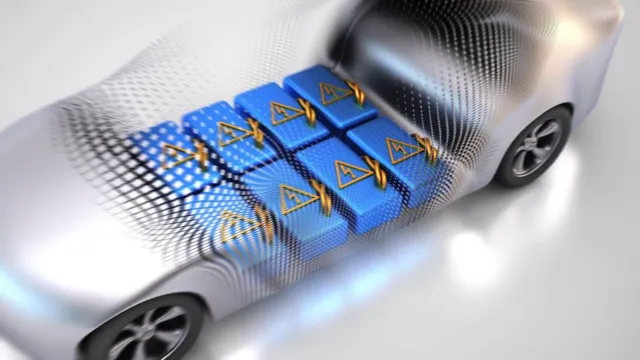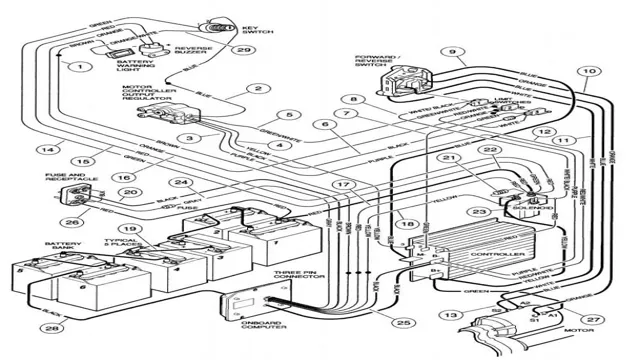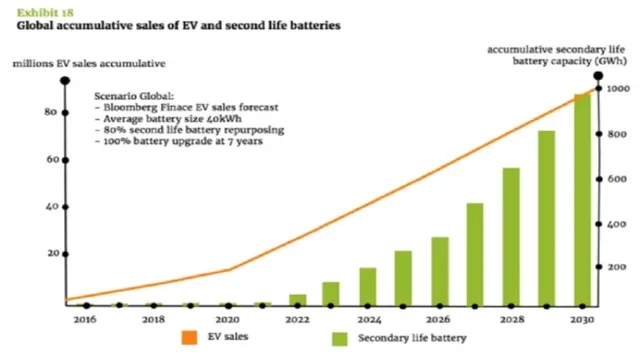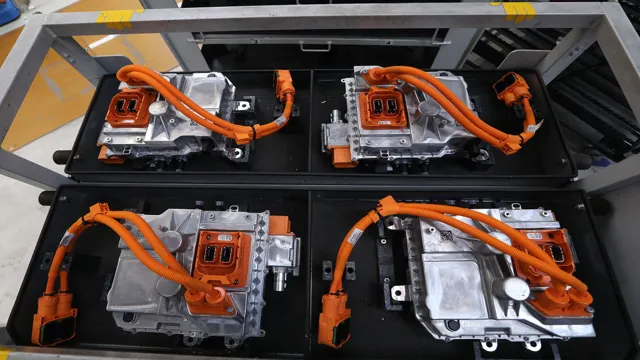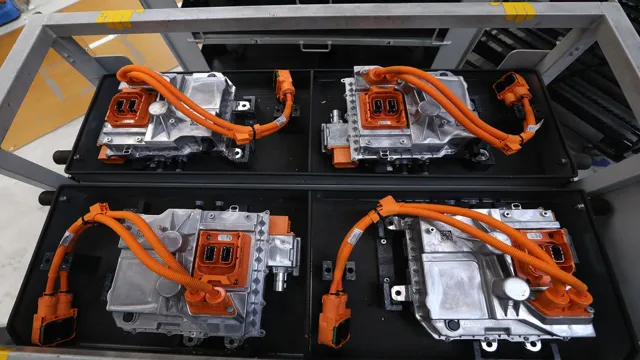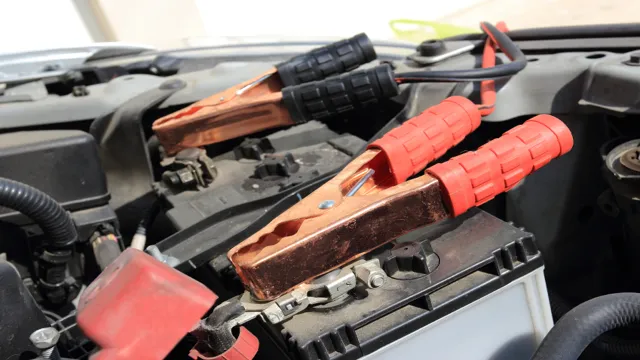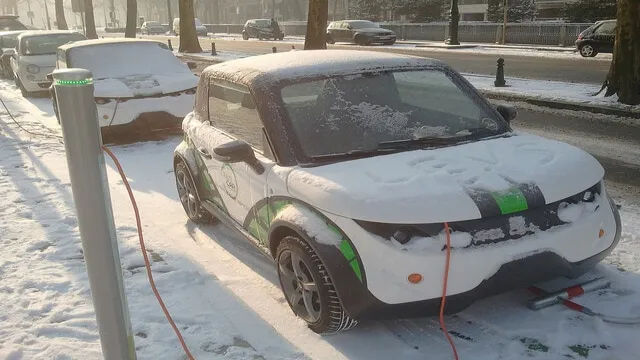Drive to Sustainability: The Truth Behind Electric Car Batteries and Recycling
Did you know that recycling electric car batteries is not only environmentally friendly but also a profitable venture? As more and more electric vehicles hit the road, the issue of how to dispose of their batteries is becoming increasingly important. The answer lies in recycling, and it’s not just about reducing waste. Recycling electric car batteries also allows for the recovery of valuable metals such as cobalt, lithium, and nickel, which can be used in other products.
In fact, recycling electric car batteries is a lucrative business, with some companies reporting profits of up to $1,000 per ton of recycled batteries. And, as the demand for electric vehicles continues to grow, the potential for profits in battery recycling is only set to increase. But it’s not just about the money.
Recycling electric car batteries is crucial for the sustainability of the planet, as it reduces the amount of waste ending up in landfill and the need to mine new materials. Furthermore, recycling batteries reduces the risk of toxic chemicals polluting the environment, which can cause serious harm to wildlife and humans alike. So, the next time you’re driving your electric car, consider the end-of-life of your batteries and how recycling them can benefit both the environment and your wallet.
Environmental Impact
As electric vehicles (EVs) become increasingly popular, the concern for the impact of their batteries on the environment also grows. Many people wonder whether the batteries from EVs can be recycled. The answer is yes! Lithium-ion batteries, which are commonly used in electric cars, are highly recyclable.
In fact, most of the materials used in these batteries, including the lithium, cobalt, nickel, and aluminum, can be recovered and reused. Recycling not only reduces the environmental impact of disposing of used batteries but also helps to conserve natural resources. With the expected rapid growth of the EV industry, the demand for battery recycling is likely to increase in the future.
Fortunately, many companies are already working on developing efficient and cost-effective methods for recycling EV batteries. This means that the batteries from your electric car will likely have a second life, rather than ending up in a landfill.
Waste Reduction
Waste reduction is essential for minimizing environmental impact. When we generate waste, it ends up in landfills where it can take hundreds of years to decompose. As waste decomposes, it releases dangerous chemicals into the air, soil, and water.
This pollution can harm ecosystems, contaminate water sources, and even affect human health. That’s why reducing our waste is essential for protecting the planet. There are many ways to do this, such as recycling, composting, and reducing single-use plastics.
By taking small steps like bringing reusable bags to the grocery store and avoiding disposable items, we can make a big difference. It’s important to remember that even small changes can have a significant impact in the long run. So, let’s all do our part to reduce waste and protect the environment for future generations.
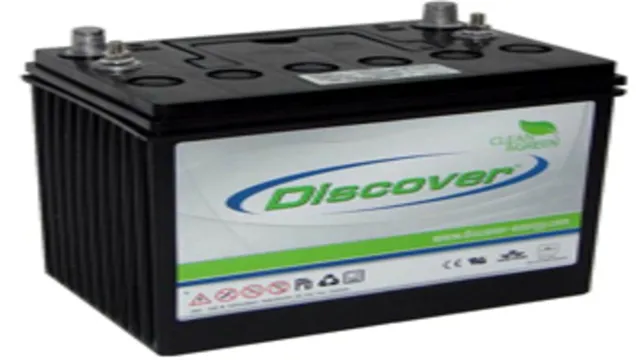
Material Recovery
Material recovery is the process of collecting and reusing materials from waste streams to reduce the environmental impact of discarded products. It plays a crucial role in the circular economy by minimizing waste and extending the lifespan of raw materials. The environmental benefits of material recovery are manifold, ranging from reduced greenhouse gas emissions to decreased reliance on virgin resources.
By recovering materials such as plastic, paper, and metal, we can divert them from landfills and incinerators and give them a second life. This not only reduces the amount of waste that ends up in the environment but also conserves energy and resources required to produce new products. The adoption of material recovery practices globally can have a significant impact on our planet by reducing pollution, preserving natural resources and mitigating climate change.
Therefore, it is essential that businesses and individuals adopt and promote material recovery practices as part of their waste management strategies to contribute to a more sustainable future.
Current Recycling Methods
Can batteries from electric cars be recycled? The answer is yes, but the current recycling methods are not perfect. Currently, only a small percentage of lithium-ion batteries from electric cars are being recycled, with the majority being discarded in landfills. However, there are several promising methods being developed to make the recycling of these batteries more efficient and economical.
For example, some companies are working on developing processes that can efficiently extract valuable metals such as cobalt, nickel, and lithium from old batteries. These metals can then be reused in the production of new batteries, reducing our reliance on raw materials and helping to create a more sustainable, circular economy. While there is still much work to be done, the growing focus on sustainability and responsible manufacturing practices is driving innovation in this area, and we can expect to see significant advances in battery recycling technology in the years to come.
Hydrometallurgical Process
One current method of recycling precious metals is through hydrometallurgical processes. This process involves dissolving the metals in a solution using chemicals such as acids and bases. The metals are then extracted using different techniques depending on the desired metal to be recovered.
For example, gold can be separated using activated carbon or ion exchange resins while silver can be recovered through cementation. This method of recycling is becoming more popular due to its efficiency and effectiveness in recovering metals. In addition, it is considered a clean technology since it produces minimal waste and emissions.
However, it also has its limitations, such as the cost of chemicals and the complexity of the process, especially when dealing with complex metal mixtures. Despite this, hydrometallurgical processes still provide a promising solution for precious metal recycling in various industries.
Pyrometallurgical Process
Pyrometallurgical process, recycling methods Recycling methods have become increasingly important as we strive towards environmental sustainability. One such method is the pyrometallurgical process, which involves using high temperatures to separate valuable metals from waste materials. This process is commonly used in the recycling of electronic waste, particularly for recovering metals such as copper, aluminum, and lead.
The pyrometallurgical process involves several steps, including crushing and shredding the waste material to reduce its size, then heating it in a furnace to produce a molten metal that can be separated from impurities. This process can be energy-intensive, but it can reduce the need for mining and the extraction of new raw materials. With the growth of the electronic waste industry, the pyrometallurgical process is becoming an increasingly important tool for sustainable waste management.
Direct Integration
Current recycling methods typically involve direct integration to make use of the materials that can be extracted from products that have reached their end-of-life. This involves breaking down materials such as plastics, metals, and glass to produce raw materials that can be used again in the manufacturing of new products. Direct integration is a popular recycling method because it is efficient and cost-effective.
However, it can also be challenging because some materials are difficult or impossible to recycle. Additionally, not all products are designed with the recycling process in mind, which can make it even more difficult to recover valuable materials. Despite these challenges, direct integration remains an important part of the recycling industry, and efforts are being made to make the process more effective and sustainable.
Future of Electric Car Battery Recycling
With the increasing popularity of electric cars, there is a growing concern about the disposal of their batteries. Fortunately, electric car batteries can be recycled, and this process has already begun. Recycling these batteries helps reduce waste and pollution, as well as conserving natural resources.
The main challenge is to make battery recycling economically viable and efficient, as the process is still relatively expensive. However, with new innovations and advancements in technology, the future of electric car battery recycling looks promising. It is estimated that nearly all of the materials inside the batteries, such as lithium and cobalt, can be reused to produce new batteries or other products.
The increase in demand for electric vehicles means that there will be a greater need for battery recycling, and this will likely drive further investment in the industry. In conclusion, recycling electric car batteries is not only feasible, but it is also necessary for a sustainable future.
Research and Development
The future of electric car battery recycling looks promising, with innovative research and development being conducted to make the process more efficient and sustainable. Recycling lithium-ion batteries from electric vehicles has been a challenge due to their complex composition and potential safety hazards. However, scientists are currently exploring new ways to improve the recycling process by developing novel techniques and technologies.
For example, some companies are experimenting with using artificial intelligence and machine learning to identify and sort out different battery materials. Others are exploring the use of hydrometallurgical processes, which involve using water-based solutions to extract metals from the battery materials. These innovative approaches could help reduce the environmental impact of electric car battery production and end-of-life disposal, while also promoting resource conservation.
As the demand for electric cars continues to grow, it’s essential to prioritize sustainable battery recycling practices to minimize waste and maximize energy efficiency.
Policy and Investment
The future of electric car battery recycling looks bright, as technological and policy advancements are driving the development of more efficient and effective recycling methods. With the rise of electric vehicles (EVs) comes an increase in battery production, which could lead to a potentially hazardous environmental issue if not handled properly. However, with the help of policy initiatives and investments, the industry is working to create innovative solutions to recycle EV batteries in a sustainable and cost-effective manner.
One such solution is the development of closed-loop recycling systems, where EV battery materials are recovered and used to create new batteries, thus reducing the need for new mining and minimizing waste. Another approach is the use of hydrometallurgical processes, which use a chemical solution to extract and purify valuable materials from spent batteries. Overall, the future of electric car battery recycling relies heavily on continued efforts in policy and investment to ensure that the advancements made in technology are matched by sustainable and safe practices.
Conclusion
In conclusion, the question remains: can batteries from electric cars be recycled? The answer is a resounding YES! With the increasing demand for sustainable energy solutions, recycling electric vehicle batteries is becoming more vital than ever. Not only does this allow for the conservation of valuable resources, but it also reduces waste and helps to pave the way for a greener future. So, next time you’re considering buying or disposing of an EV battery, remember that recycling is not only feasible but also a responsible choice.
As the saying goes, “reduce, reuse, recycle” – and in the context of electric vehicles, the power is quite literally in our hands.”
FAQs
What percentage of electric car batteries can be recycled?
It varies based on the type of battery and its age, but newer lithium-ion batteries can be recycled up to 95%.
Can electric car batteries be reused after recycling?
Yes, recycled batteries can be used for energy storage in homes or businesses, or repurposed for other non-automotive uses.
How does the recycling process for electric car batteries work?
The batteries are first disassembled and sorted into their component parts. Then, the materials like lithium, cobalt, and nickel are extracted and purified for reuse in new batteries.
Is recycling electric car batteries environmentally friendly?
Yes, recycling the batteries reduces the amount of hazardous waste in landfills and conserves valuable metals, which reduces the need for environmentally damaging mining practices.
